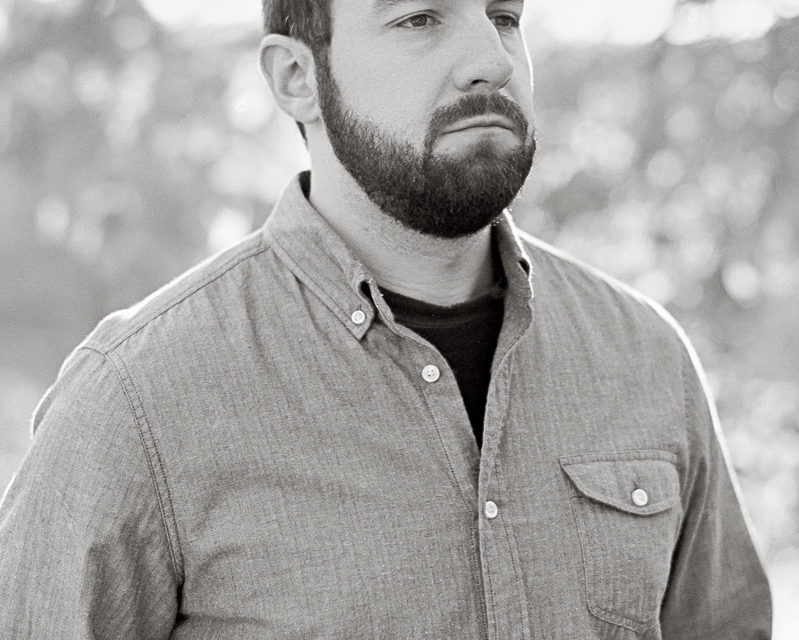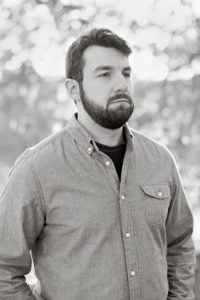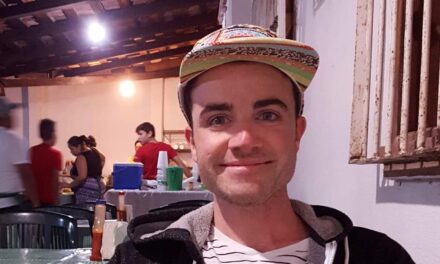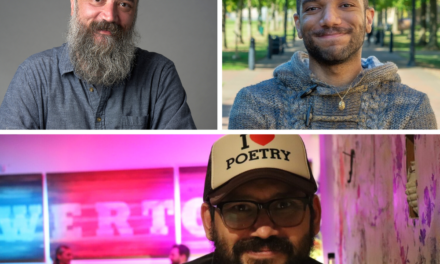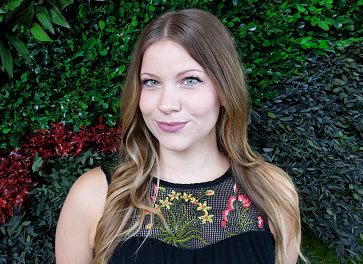Assistant Editor Caitlin Doyle: In “Iraq Good,” poet and veteran Hugh Martin presents a scene that bristles with tension. As an American soldier stationed in Iraq, the poem’s speaker paces with his fellow servicemen outside of the Sadiyah police compound while several small Iraqi boys linger nearby. The children engage in pretend fights (they “chop each other, gently, with knife-hands”) and practice their English with the soldiers, who respond to them in a playful and encouraging way. But even while the American men and the Iraqi boys participate in a spirited back-and-forth, we feel with increasing intensity the many distances that they can’t traverse. Drawing a parallel between the dirt road on which the men and children stand (the “ground where the first words were made” with “blunt reed on wet clay”) and the clay out of which the boys’ houses have been built, Martin prompts us to look closely at the fraught nature of communication.
Though some of these children, as the soldiers speculate, will grow up to fight against U.S. troops, does Martin intend for us to find a hint of hope in the amicable interaction between the Iraqi boys and the American men? Does he gesture toward the possibility that humans ultimately possess the capacity to resolve even the knottiest of cross-cultural conflicts? These questions remain unanswered as the children persist in their innocently unnerving make-believe fights and the soldiers continue to banter with them: “… if we kept those boys there, / talking, on that street as evening came, we’d be, / for the moment, okay if only we kept it going.” With remarkable artistry, Martin simultaneously warms us and chills us as dusk descends on Sadiyah.
To hear Hugh read his piece, you can click below:
Iraq Good
by Hugh Martin
The small boy smiles, kicks roundhouses across the potholed road, says, Van Damme good? & I say, Yes, Van Damme good. The boy punches the warm air while we, on the street for hours, outside the Sadiyah police compound walled with Hescos higher than our gunners’ heads, pace circles around the trucks. Two other boys, maybe nine or ten, chop each other, gently, with knife-hands, & one turns, says, No good Saddam, Saddam very no, & he points to his sandal’s heel, Saddam no. & so it went: Bruce Lee good, Zamzam good, falafel good, even Michael Jackson good, even Bush good, even America very good. We stood, speaking on ground where written words were first made, where Enheduanna, Sargon’s daughter, wrote her poems, blunt reed on wet clay, the clay that made the walls those children slept behind at night, that filled the Hescos behind our backs to protect from blasts & bullets. We leaned, a few feet from the boys, against Humvees—two hundred grand apiece—made in Indiana. Insurgents were paid— we knew—to blow one apart: five hundred US cash. Sometimes, as the boys spoke to each other, their Arabic muffled by passing traffic & muezzin calls, we’d talk, too, amongst ourselves, asking, just steps from the boys, which one might, in five or ten years or less, fight us. Still, these silences, brief, would break when one of the boys might point to our rifles hanging over our vests, muzzles aimed at the road, the black red-dot scopes clipped to the carrying handles, & say, Laser . . . good, then point to our dark ballistic sunglasses, say, X-ray yes, good, &, although we’d agree, there was really no laser, no X-ray, but if we kept those boys there, talking, on that street as evening came, we’d be, for the moment, okay if only we kept it going: Ali Baba no good, chicken good, Sadiyah good, Iraq good, & good, & good.
Hugh Martin is a veteran of the Iraq War and the author of The Stick Soldiers (BOA Editions 2013) and the forthcoming, Service (BOA Editions 2018). His work has appeared in The New York Times, The Kenyon Review, and The New Yorker. He is completing a PhD at Ohio University.
For more miCRo pieces, CLICK HERE.

